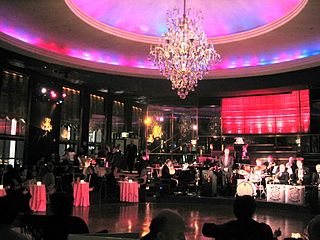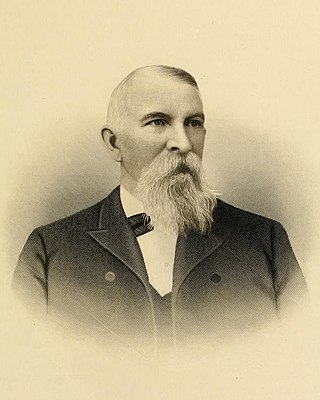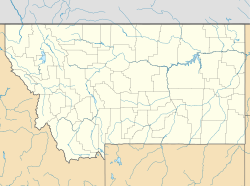
Bozeman is a city and the county seat of Gallatin County, Montana, United States. Located in southwest Montana, the 2020 census put Bozeman's population at 53,293, making it the fourth-largest city in Montana. It is the principal city of the Bozeman, MT Micropolitan Statistical Area, consisting of all of Gallatin County with a population of 118,960. It is the largest micropolitan statistical area in Montana, the fastest growing micropolitan statistical area in the United States in 2018, 2019 and 2020, as well as the second-largest of all Montana's statistical areas.

Montana State University (MSU) is a public land-grant research university in Bozeman, Montana. It is the state's largest university. MSU offers baccalaureate degrees in 60 fields, master's degrees in 68 fields, and doctoral degrees in 35 fields through its nine colleges. More than 16,700 students attended MSU in fall 2019, taught by 796 full-time and 547 part-time faculty.

Western Montana is the western region of the U.S. state of Montana. The most restrictive definition limits western Montana only to the parts of the state west of the Continental Divide. Other common definitions add in the mountainous areas east of the divide including Beaverhead, Gallatin, Jefferson, Lewis and Clark, Madison, and Park Counties. The region is sometimes considered to be part of the Inland Northwest.

The Gallatin National Forest is a United States National Forest located in South-West Montana. Most of the Custer-Gallatin goes along the state's southern border, with some of it a part of North-West Wyoming.

Bozeman Yellowstone International Airport is located in Belgrade, Montana, United States, eight miles (13 km) northwest of Bozeman. Owned by the Gallatin Airport Authority, it has been Montana's busiest airport since 2013.

The Rainbow Room is a private event space on the 65th floor of 30 Rockefeller Plaza at Rockefeller Center in Midtown Manhattan, New York City. Run by Tishman Speyer, it is among the highest venues in New York City. The Rainbow Room serves classic and contemporary American cuisine.

Bridger Bowl is a ski area in the western United States, near Bozeman, Montana. It serves the local population of Gallatin County, including Montana State University. The summit elevation is 8,700 feet (2,650 m) above sea level, with a vertical drop of 2,600 feet (790 m) on east-facing slopes.

The Brick Breeden Fieldhouse is a multi-purpose indoor arena located on the campus of Montana State University in Bozeman, Montana. It is the home of the Montana State Bobcats of the Big Sky Conference; the primary venue for men's and women's basketball and indoor track and field.

Ted's Montana Grill is an American restaurant chain. The company was founded by media mogul and bison rancher Ted Turner along with restaurateur George McKerrow Jr. with the help of corporate chef Chris Raucci as a for-profit effort to stop the extinction of the American bison. The first Ted's Montana Grill opened in January 2002 in Columbus, Ohio. Today it has 39 restaurants in 16 states. Its first Montana location opened at the Baxter Hotel in Bozeman in June 2008. The company is based in Atlanta.

The Seward Hotel, also known as the Governor Hotel, is a historic hotel building in downtown Portland, Oregon, United States, that is listed on the National Register of Historic Places (NRHP). Built in 1909, it is one of two NRHP-listed buildings that make up the Sentinel Hotel, the other being the 1923-built Elks Temple. The Seward was renamed the Governor Hotel in 1931, closed in the mid-1980s, and reopened in 1992 joined with the former Elks building, and thereafter formed the east wing of a two-building hotel.

The Gallatin Gateway Inn is a Spanish-stucco style railroad hotel at Gallatin Gateway, Montana. The hotel is one of the "Historic Inns of America." The Gallatin Gateway Inn was opened on June 18, 1927. Constructed and operated by The Milwaukee Road, the luxury hotel was reached by electrified railroad branch line that connected to the Milwaukee's main line at Three Forks, Montana. It was among the first hotels in Montana with telephones in every room, and offered travelers access to Yellowstone National Park. Park buses took passengers from the hotel to the park.

The Savoy Hotel and Grill was a historic hotel and restaurant in Kansas City, Missouri. The Savoy Hotel was the oldest continuously operating hotel in the United States west of the Mississippi River until it closed in 2016 to undergo extensive renovation by 21c Museum Hotels and reopened in 2018. In 1974 it was listed on the National Register of Historic Places as "Savoy Hotel and Grill". It is now called "21c Museum Hotel Kansas City".

Nelson Story Sr. was a pioneer Montana entrepreneur, cattle rancher, miner and vigilante, who was a notable resident of Bozeman, Montana. He was best known for his 1866 cattle drive from Texas with approximately 1000 head of Texas Longhorns to Montana along the Bozeman Trail—the first major cattle drive from Texas into Montana. His business ventures in Bozeman were so successful that he became the town's first millionaire. In 1893, he played a prominent role in the establishment of the Agricultural College of the State of Montana by donating land and facilities. He built the first Story Mansion on Main Street in Bozeman in 1880 and later built today's Story Mansion at the corner of Willson and College for his son, T. Byron Story in 1910. In his later years, he became a prominent real estate developer in Los Angeles, California.

Fred Fielding Willson, most commonly known as Fred F. Willson, was an architect in Bozeman, Montana who designed many buildings that are listed on the National Register of Historic Places.

The Gallatin County High School was a public high school in Bozeman, Montana. It was built Romanesque/Classical Revival style in 1902, expanded in c. 1914, and gained an Art Deco addition in 1936–37. The c.1914 and 1936-37 work was designed by architect Fred F. Willson; it was renamed Willson School following its conversion to a junior high school.

The Spieth and Krug Brewery, also known as "Union Hall" and "Maxey Block", is a brewery established in 1867 in Bozeman, Montana, by two German immigrants, Jacob Spieth and Charles Krug. The current building was built in 1882. In 1895 the brewery was bought by Julius Lehrkind, whose descendants still operate beverage businesses in Bozeman.
The Bozeman Brewery Historic District, located in Bozeman, Montana, at 700–800 N. Wallace Avenue, consists of five structures, all still closely connected to the Julius Lehrkind family and their Bozeman Brewery business. Lehrkind and his brother, Fred, were brewers who immigrated to America from Germany. Lehrkind and his extended family eventually settled in Bozeman, and the family continues to operate businesses in the Bozeman area. The five structures in this historic district are:

The Arvon Block is a historic building located in Great Falls, Montana, in the United States. Constructed from 1889 to 1890 by wealthy rancher and city booster Robert Vaughn in the Western Commercial architectural style, the buildings are some of the oldest in the city of Great Falls. They originally functioned as a hotel, and served passengers arriving in the city via train on the Montana Central Railway. The single structure was later divided internally into three buildings, now housing a boutique hotel, and an Irish-themed pub and restaurant. The Arvon Block was added to the National Register of Historic Places on September 26, 1991.
Glen Lake Rotary Park is an 83-acre recreation area in Bozeman, Montana, United States. The lake was originally a water filled old gravel pit.

Bozeman Depot is a former train station in Bozeman, Montana, opened in 1883 by the Northern Pacific Railway. The current brick station house was built in 1892 and expanded in 1924.
























